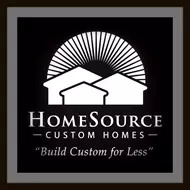If you’re currently searching the market for a home, you may be considering a fundamental question: “Should I buy an existing home, or one that is built brand new?” There are many benefits of building a new home and this question is one of the first decisions you may make, because it changes the way you search for your home. For example, when searching the market for a pre-owned home, you can look at many real-estate brokers’ websites, or speak with an individual Realtor to help you find listed homes that suit your requirements. But not all new construction opportunities are listed with Realtors, and may not show up in their databases. It is important to know all of your options so you make a wise buying decision!
PRICE/VALUE
It is sometimes assumed that a pre-owned home will cost less than a new one. Today, this is not really true. The prices of brand new homes have come down in recent years and the value balance has tipped to the new home. When comparing the costs of making the needed changes and fixes that inevitable come with any used home purchase, with any price difference to be able to buy a brand new home, many are surprised to find that the brand new home actually costs them less!
It is also important to understand that the homebuilder may have a greater ability to be flexible with his price or included features. The used home owner usually has a minimum they must get out of the house in order to buy the new one they are trying to purchase.
Used home sellers have also been much slower to react to the changing economic climate. Home Builders understand the volatility in supply and demand and have adjusted prices accordingly, where individual used home owners may still be dreaming of the higher home prices of several years ago, and therefore are reluctant to sell their homes for the prices a current buyer wants to pay.
Home Builders also have a greater ability to offer added value, such as including upgraded features or additions to the home, where an existing home seller can not.
Then, of course, there is the “unknown” element of an existing home’s true cost. That is, the price paid plus all of the modification and fix-up costs that may come within the first few years. Depending upon the home you select, you may need to pay for new flooring and upgrades at the time of purchase just to get the home up to today’s standards. This is especially true in used home kitchens and heating & cooling systems. Then you must add in the “surprises” such as a new furnace or roof, or the cost of plumbing or electrical problems you didn’t know of.
It is easy to see how the illusion of the old home being “cheaper” is quickly dispelled with a little comparison!
TIMING
Often, right along with the “price/value” argument, you hear that buying a used home is the preferred choice because it is faster, due to the time it takes to build a new one. Today, however, this is not true. In fact, you may find the opposite to be true!
Many builders have homes already completed, or in various stages of construction. They refer to these as “inventory homes”, “quick-move homes”, “market homes” or other similar titles. The benefit is you get the best of both worlds: a brand new home AND no waiting to build from scratch. If you are one that needs to move quickly, it would be a wise decision to search your builder’s selection of homes available for quicker move-in.
These homes come with all of the cost/value benefits of the brand new construction home, plus you still have the ability in many cases to personalize the home with your own color selections and features, such as cabinets, countertops, flooring and appliances depending upon the home’s stage of completion.
Builders also have incentive to sell these homes at exceptional prices, since the longer the builder holds them without selling them, the more they cost him.
In a pre-owned home, you often have to make construction and remodel changes. You’ll certainly want to change the flooring, wall colors, and perhaps do some updating to kitchens or baths before moving in. This could add weeks to the move-in time to the used home. Soon, the timing of selecting a used home and doing the renovations is equal to or longer than buying a ready-to-go brand new home.
So, if you have a shorter time frame, a new home may be your best choice!
RESALE VALUE
Of course, if this is not going to be your last home, you must consider what the property’s value will be when you need to sell it several years down the road. It is logical that homes built in up-and-coming areas are growing in popularity will tend to increase in value are a greater pace than those that are in older neighborhoods. So it would be a good idea to buy a home in a part of town that seems to be growing, and not just staying consistent. It is critical to avoid parts of town that may be old enough to be on the decline in demand, and therefor home values.
New home communities, as they are business ventures for the homebuilding companies, are generally built in areas that are expected to see the most growth in the near future. Builders and their investors have a great deal at stake, and spend many hours and dollars researching the market to determine which areas of the city will grow in value the most. This is an important part of their business plans. Therefore, it is logical that the new home, in a more upward moving part of town would be a better investment than a used home in an older part of town that is either stagnant or declining in value.
